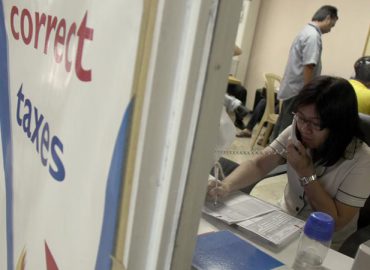.
By Bianca Cuaresma, July 31 2018; Business Mirror
https://businessmirror.com.ph/bsp-backs-creation-of-payments-law/
Image Credit to Bangko Sentral ng Pilipinas
THE Bangko Sentral ng Pilipinas (BSP) has expressed support for the passage of the Payment Systems Act to establish clearer guidelines on the electronic transactions and online payments in the country.
The act filed under Senate Bill 178, or “An act providing for the regulation and supervision of payment systems,” is currently pending second reading in the Senate.
According to the Act’s explanatory note, it seeks to organize, manage and regulate all matters affecting payment instructions in the country under the BSP to promote effective interoperability among payment systems, incorporating digital transactions.
Central Bank Governor Nestor A. Espenilla Jr. said in a recent speaking engagement that among the efforts being taken up by the BSP includes backing the enactment of the filed bill.
“On the legislative side, we are pursuing measures to support reforms in the payments landscape through the enactment of the Payment Systems Act,” the BSP chief said, adding that the bill provides for a clear mandate of the BSP for the regulation and oversight of the payment system.
The current bill will allow the BSP to designate or acquire a payments system for the country, issue rules and regulations governing the standard operation of payment systems, and suspend or revoke the authority or registration to operate of payments system.
It also gives the BSP the authority to own and operate a payment system “as may be deemed necessary” by the Monetary Board.
The House, on the other hand, passed its version on third and final reading in 2017.
Officials in Congress in 2017 said a number of central banks have mandates to oversee payment and settlement systems, including Bank Indonesia, Bank Negara Malaysia, Central Bank of Myanmar, National Bank of Cambodia, Bank of Lao PDR, Monetary Authority of Singapore, Deutsche Bundesbank, Bank of France, Banco de España, Bank of Japan and State Bank of Vietnam.
“Unlike the central banks mentioned, the powers of the Bangko Sentral ng Pilipinas as provided in its charter and other special laws do not extend to entities which operate payment systems. Neither is the Bangko Sentral granted the power to oversee payment systems in the country,” Rep. Ben Evardone earlier said.
Despite the lack of legislation, Espenilla said the BSP is “giving the payment and settlement system the attention it deserves.”
“We recognize that having an efficient payment system is not just about operating infrastructure, but also providing an enabling regulatory environment that promotes interoperability, efficiency and consumer protection,” he said.
Among the advancements motioned by the governor include the establishment of the framework for the National Retail Payment System (NRPS) to create a safe, efficient, affordable and interoperable electronic retail payment system.
Under this framework, two Automated clearing houses (ACHs)—PESONet and Instapay—were introduced in the last two years.
Both ACHs is seen to provide digital payment solutions to the current payment challenges encountered by government, businesses and ordinary consumers.

